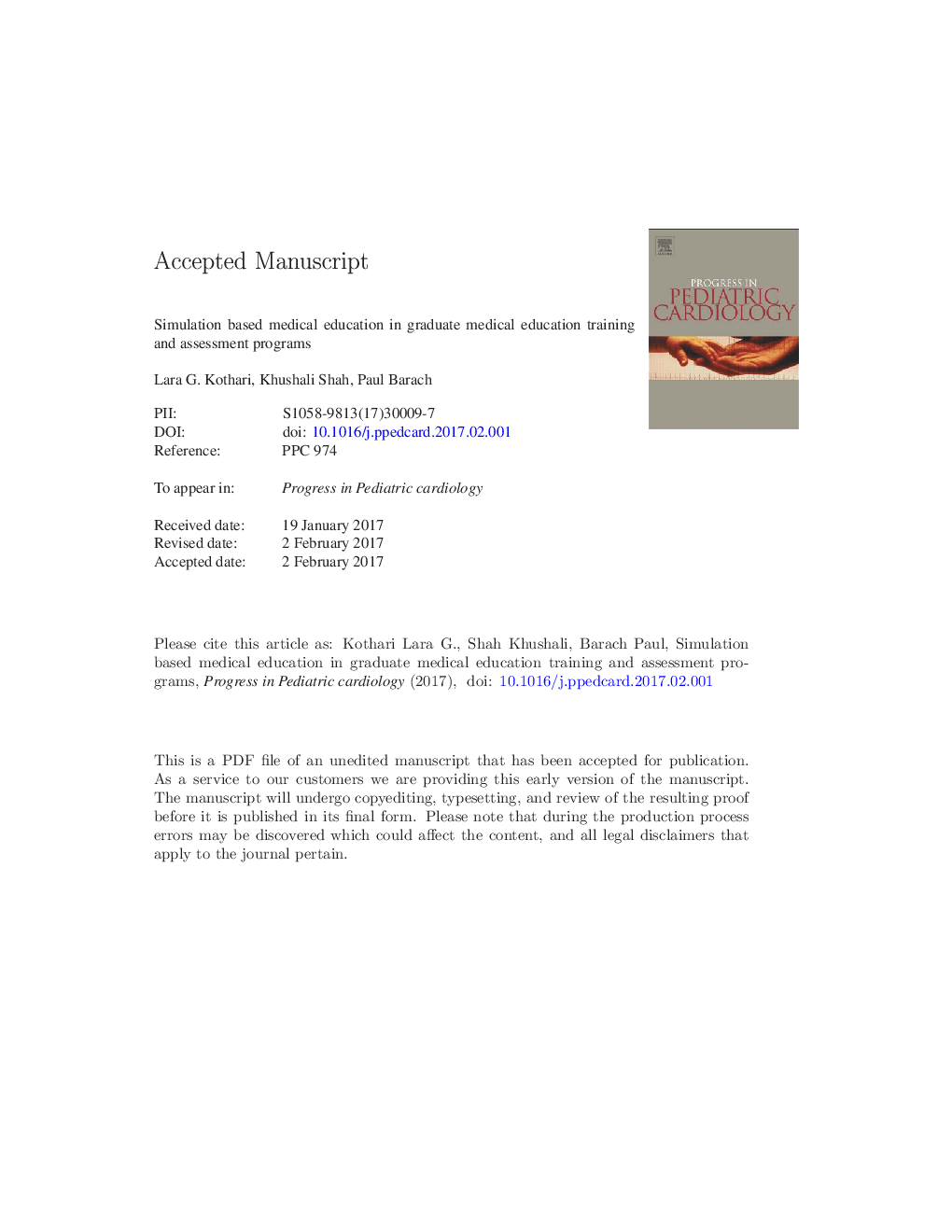| Article ID | Journal | Published Year | Pages | File Type |
|---|---|---|---|---|
| 5619728 | Progress in Pediatric Cardiology | 2017 | 43 Pages |
Abstract
The healthcare system has an inconsistent record of ensuring reliable and safe patient outcomes. One of the main factors contributing to this poor record is inadequate and unreliable interdisciplinary team behavior. Learning how to function within an interdisciplinary team must begin early in medical training. Simulation based medical education (SBME) is an essential part of graduate medical education (GME) training, the acquisition of core competencies and their assessment. In this paper, we describe SBME as it relates to learning and professional maturation. We describe the use of simulation in GME training, link simulation to the ACGME professional core competencies, present examples of simulation assessment methods, and explore simulation as part of board certification and professional life long learning. We discuss the important benefits of simulation for hospitals and patient safety. We summarize the literature on cost effectiveness of simulation in education and the growing evidence that SBME translates to improvements in communication, teamwork and clinical care and the overall improvement of healthcare. We discuss the challenges and costs required to develop a successful simulation and training center, lab or in-situ program. We discuss the return on investment of SBME as it relates to patient safety, cost savings, and improved patient care. Hospitals should embrace simulation based medical education and support the development of simulation centers so that SBME becomes an integral part of the hospitals' mission to provide patients with the best care possible.
Related Topics
Health Sciences
Medicine and Dentistry
Cardiology and Cardiovascular Medicine
Authors
Lara G. Kothari, Khushali Shah, Paul Barach,
